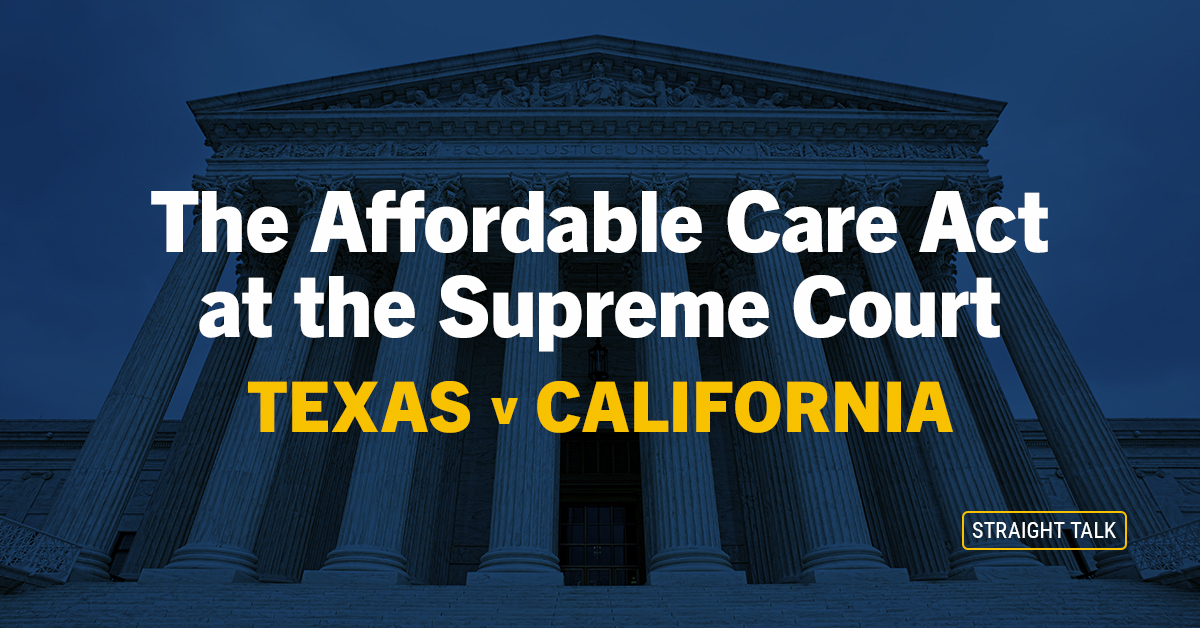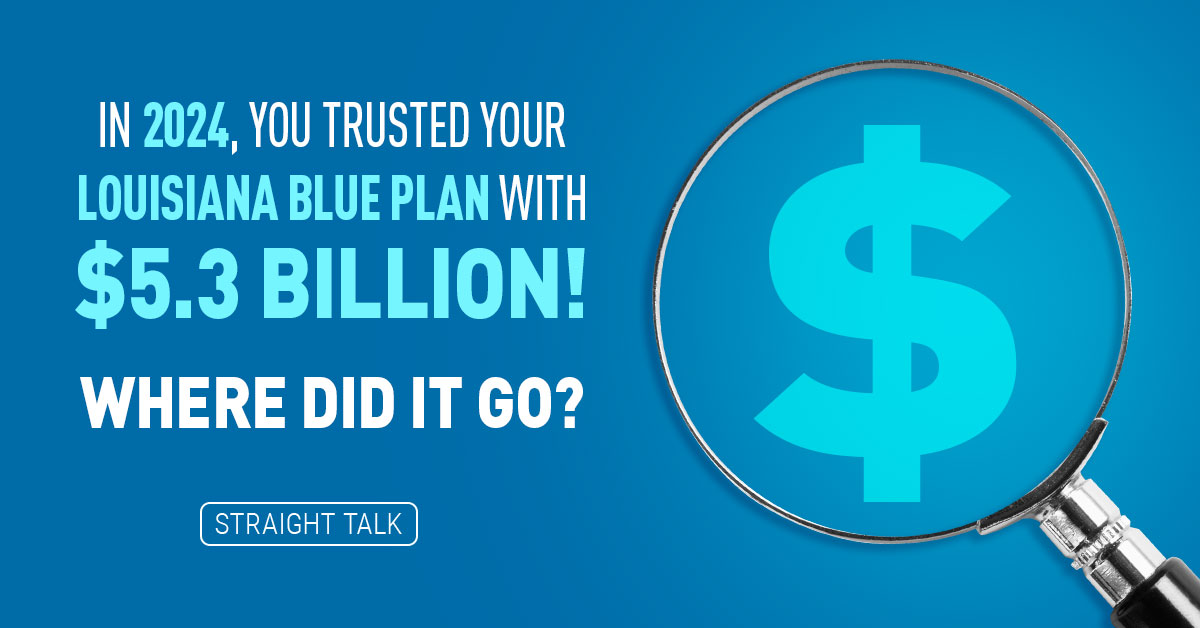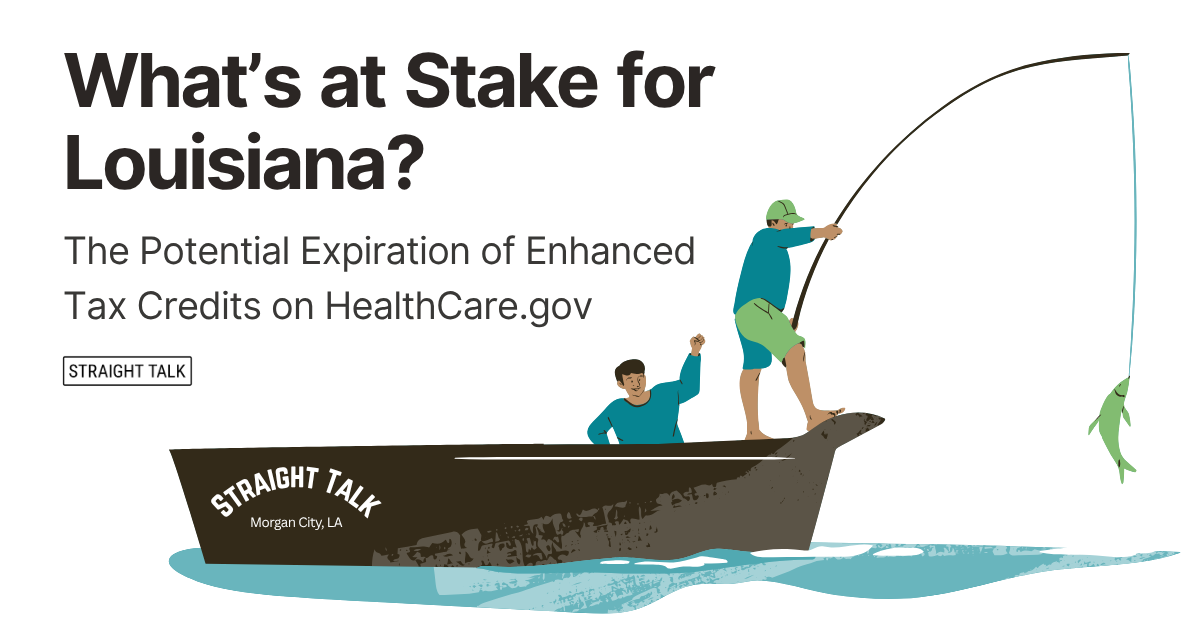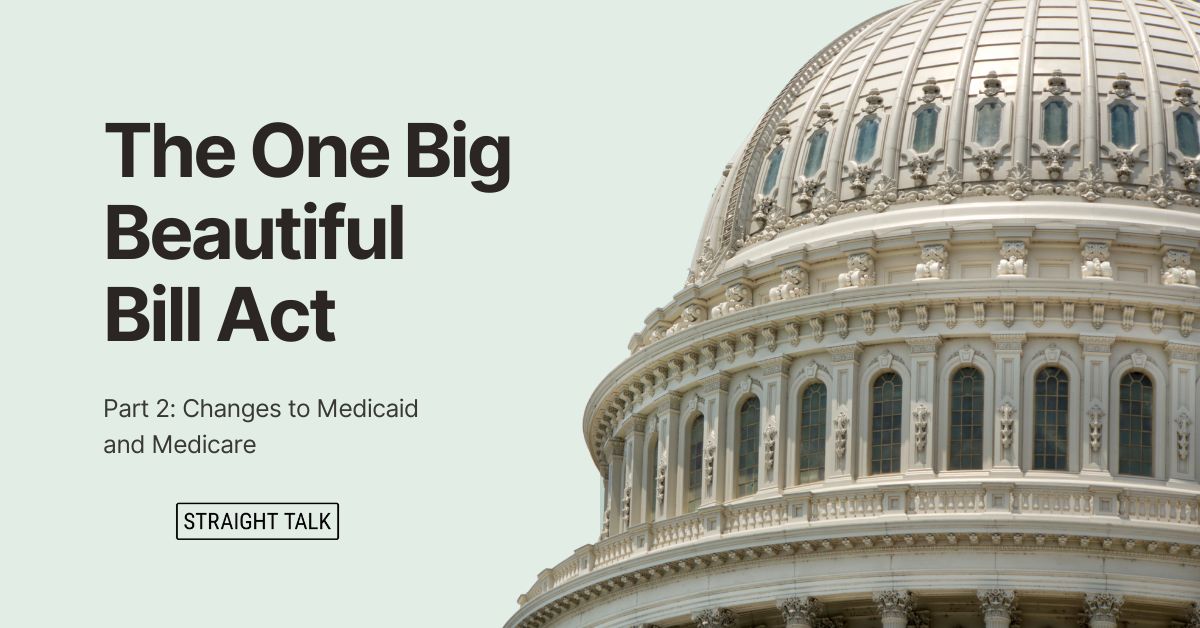Hello, old friend — here we are again!
Since the ACA was passed in 2010, it has endured some pretty hard-charging court challenges. We wrote extensively about this most recent court challenge (Texas v. U.S.) last year.
The One Where the ACA Goes to the Supreme Court
Some background – the United States Supreme Court’s nine-month term starts in October and generally concludes by the end of June. At the beginning of June, the court still had quite a few cases left to decide, including California v. Texas., as the case was known in the Supreme Court (It was called Texas v. U.S. in lower courts).
We’ve been waiting to hear what SCOTUS would say, and, today, the esteemed justices issued their ruling.
But something unusual happened.
Before we get to that, know that the justices did not do anything to diminish the power and authority of the law. Nor did they do anything that would threaten the health insurance of the 22 million Medicaid recipients. Nor the 10 million healthcare.gov customers nationwide who owe their health insurance coverage LARGELY to the money distributed to the states and individuals by the ACA. So, if you are receiving Medicaid from the state of Louisiana, or federal Advanced Premium Tax Credits from Healthcare.gov to help with your insurance, your coverage will not be affected by the Supreme Court’s action.
The unusual part about this case was that the nine sitting justices refused to offer any thoughts, or decisions, on the meat of the case. They didn’t opine or write or say anything in their decision about the main issue in the case, which revolved around the constitutionality of the ACA’s individual mandate rules.
Instead, what they did was offer an analysis of whether or not the individuals suing the government (12 state attorney generals and some private citizens, called the “Texas Group”) had been damaged by the ACA’s individual mandate or its reduction as a fine to $0 as an infraction.
According to the Supreme Court (by a vote of 7 to 2), the people bringing the case, which has stretched on in the federal court system for years, NEVER had the right to bring the case in the first place. In the Supreme Court’s opinion, the plaintiffs were not damaged enough by the law or changes to the law. This is called “standing,” as in, “Did the plaintiffs have the standing to bring this case to court in the first place?” And the ultimate decision was “No, they did not.” That stopped the Supreme Court’s analysis immediately.
The One with the Non-Decision Decision
This is an interesting decision for a couple of reasons.
- First, this case was heard initially by a federal district judge and appealed to the Fifth Circuit Court of Appeals in New Orleans. BOTH the lower courts said the people bringing the lawsuit DID have standing. The Supreme Court disagreed with both.
- Second, by denying the Texas group standing, the justices managed to avoid having to declare whether the ACA is constitutional or not. In other words, all of the original questions that were the crux of the lawsuit against the ACA weren’t refuted, confirmed or decided at all. They were simply ignored and there will be no Supreme Court ruling on the merits of this case at all. The justices managed to avoid a VERY sticky wicket by doing this.
Imagine if you knew that a law providing free or heavily subsidized health insurance for over 30 million people was NOT constitutional. Would YOU be in a hurry to toss it out? I sure wouldn’t. But, that’s an argument for another day. I’m not determining whether the ACA is constitutional or not, by the way. Just spit-balling here.
For now, we are quite glad that the 600,000+ Louisianians who are enjoying free Medicaid coverage today due to the ACA’s expansion of that program and the nearly 100,000 Louisianans who are enjoying heavily subsidized individual private coverage from companies like Blue Cross and Vantage Health get to keep their insurance coverage with no changes!
Straight Talk is, carry on. Nothing has changed, and that’s good news in this case for a ton of people!





Thank you SCOTUS ,,, This is 3 minutes of my life that I will never recover.
Why bother to hear a case that you have no intention toi rule on?
Micheal,
Like you, I found it a bit unnerving that the Justices were able to sidestep these issues so easily, but I can’t say I’m surprised. I’m sure from their perspective this is a purely legislative issue and they resent having it on their doorstep at all. There have been several healthcare cases lately that have ended up in SCOTUS’ lap that Congress could have fixed in 5 minutes. Guess that’s just where we are now.
For now, move along, nothing to see here!
Cheers!…mrb
I respect your knowledge and experience, but I don’t share your optimism or glee. First, it drives me nuts when people refer to Medicaid as “free.” It is not “free,” someone is paying it! And this statement is not meant to diminish the need or benefit Medicaid provides to those who have it.
Furthermore, having experienced the disruption, chaos, and extreme increases in costs (premiums and out-of-pocket medical), from a front row and heavily involved seat, it’s hard for me to share your sentiment that the ACA is, or ever was, a good thing.
Had the Supreme Court ruled in favor of the states, I fully realize it would have created additional far-reaching chaos, but our healthcare system (both the delivery of and financing of) simply cannot be sustained on its current trajectory. My personal (admittedly with no calculated basis) opinion is there is now probably a 90% chance we will see a single-payer, government run healthcare system in the US within the next 5-10 years. And let’s be clear, that will not be “Medicare” for all, it will be a reduced version of “Medicaid” for all.
As for the 100,000 (and growing) Louisianans – depending on “heavily” subsidized plans — it is also part of a scheme that cannot be maintained. I just ran a quote for a couple nearly 60, making $200,000 a year – they qualify for “free” money too — about $902 per month actually. On what planet does this make sense? Although crazier than that fact is that a non-subsidized “individual market” plan with a $1500 per person in-network deductible and $8,550 / year out-of-pocket max, this couple would pay $3,956 per month. That is almost $40,000 per year – before they receive any healthcare, with the noted exception of their covered annual wellness services! And the ACA is a good thing?
J Broussard!
Thanks so much for your comments, and for reading Straight Talk!
If you’ve followed me for any length of time at all, you are well aware that I’ve consistently been critical of the ACA. It is, and always was, overkill of government intervention. I’ve likened it to using an Atomic Bomb to light a cigarette, and I had a front-row seat to its creation in 2008-2010, plus the “regulatory years” of 2010-2013. Terrifying. They basically re-directed 18% of the GDP of the largest nation on earth without a single vote from the opposition party, that same opposition that took total control of the government less than a year after the ACA was signed!
Like I said, terrifying!
But we can only go forward, not backwards in time. You know, of course, when I tell you someone is getting “free” healthcare they are poor so are paying very little in taxes AND they are not responsible for even $1 of premiums, deductibles, or copayments. That’s Medicaid in a nutshell. It’s not all gravy of course, very few docs and hospitals would still be open if Medicaid was their best payer. But reality is a harsh mistress. Louisiana is very nearly the poorest state in the Union, with the 2nd lowest household income (sometimes worst), lowest education levels, and horrible obesity and diabetes rates. Our life expectancy five years ago was 5 years BELOW the national average!
Taking the existing situation into consideration and throwing in our relatively low education levels compared to other states, our poorest and most vulnerable citizens NEED healthcare that is easy to understand and access, and as close to free (to them) as possible. Medicaid, messy as it is, fits that bill. To shut that off by declaring the ACA out of bounds would have thrown 600,000 people almost instantly off their healthcare as we are coming off a pandemic, with catastrophic results.
Yes, individual private health insurance is too expensive. Healthcare ITSELF is way too expensive. YES, the ACA risk pool has been mis-managed by the Feds for years resulting in a pool of people way too old and sick compared to the rest of the state, which is why those costs you mentioned are the way they are. The federal response to a broken risk pool? Throw in more money, which they did with a vengeance in March 2021 with ARPA. That just turned out to be the fastest and easiest way to get people like that 60-year-old couple you mentioned relief. And it did, didn’t it?
Nothing is free, but it can be PROVIDED for free if someone else is willing to pay for it, print, or borrow the money, all of which is going on right now no matter what I think about that.
So no, I’m not gleeful or optimistic, but after 12 years of this, I’m just praying for less disruption!
Kia Ora!….mrb
touché